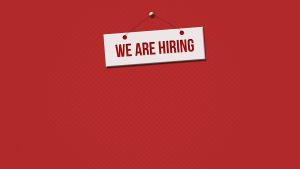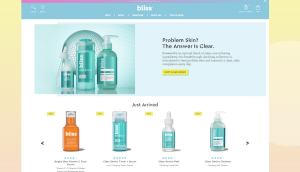The Information Age is powered by talent, and the fierce competition for skills and capabilities has created a new Workplace Economy. Individuals are the ‘sellers’, firms are the ‘buyers’ and the social web is the marketplace.
You, as a company, are now selling your workplace to Millennials that prioritizes societal impact and lifestyle over a big paycheck. Increasingly, they identify, evaluate and choose their employers through the social web. Your current employees, and their social voice, will determine your success in the Workplace Economy.
From Goods To Knowledge To Skills
The Workplace Economy reflects a change in what societies value. From roughly 10,000 B.C. to the mid-18th century, agriculture goods were prized. From the Industrial Revolution to World War II, manufactured goods became more important. At end of World War II, as we entered the Post-Industrial age, knowledge trumped physical goods. And with the advent of the worldwide web, the knowledge that was once so valued became public domain, accessible to anyone with Internet access.
So today, the greatest value resides in people’s skills and capabilities. Who you are and what you can do is more treasured than what you know. To compete in the Sharing Economy, the Subscription Economy and other Information Age economies, companies need a modern workforce with skills.
It’s common knowledge that people in Science, Technology, Engineering, and Math (the STEM fields) command a high price tag in the Workplace Economy. But it’s not just the STEM workers who have power in the Workplace Economy, which is essentially an elite subset of the job market. Salespeople, marketers, designers, analysts, researchers, etc., can command just as much market value.
Information Age skills require years of training and dedication to develop, and currently, companies are struggling to find enough talent. As the ManpowerGroup’s 2014 U.S. Talent Shortage Survey reports, 40 percent of employers report difficulty filling jobs and 56 percent believe this shortage has a medium to high impact on their ability to meet client needs. The Workplace Economy is a seller’s market.
What A The Modern Workforce Wants
As Millennials become the bulk of the American workforce, they are setting new expectations for employers, the buyers in our Workplace Economy. It’s not that Millennials are different from older generations. As Dr. Steven Hunt, a recognized expert on strategic human resources, argues, “In sum, when it comes to basic career goals and interests, Millennials are pretty much just like Baby Boomers were when they were young. The big difference is that Millennials are entering a labor market where skilled employees can demand a lot more from their employers and get it.”
Millennials can afford to be picky in their career choices. And unlike in the old job marketplace, where information about a company was limited, the social web allows workers to discern what a company really offers. We can all see what employees say on Glassdoor.com, determine our market value on Salary.com, read customer reviews and essentially dissect a company using social technology.
So if you’re buyer in the Workplace Economy, what do you need to offer on the social web? What does the modern workforce currently seek? Over the past five years, surveys and studies of Millennials have produced a dizzying mix of conclusions, many of which conflict. However, two demands are consistent across multiple studies:
Values and Impact – According to Net Impact’s Talent Report: What Workers Want in 2012, 58 percent of Millennials would take a 15 percent pay cut to work for an organization that reflects their values. Another 45 percent would take the smaller salary for a job that makes a social or environmental impact. Researchers at UNC Kenan-Flagler Business School and the Brookings Institution have also discussed this preference for meaning over more money. Young people seek a deeper purpose in their work, so they’ll choose an employer with a compelling vision that mirrors their own values.
Lifestyle and Autonomy – Surveys from Net Impact, Cangrade, PwC, and others have all found that Millennials place a huge priority on work-life balance, flexibility, and autonomy. In the Information Age, flexibility makes sense because at the world’s most innovative organizations, performance is measured by the quality of results, not time and units produced. If unlimited vacation time or telecommunicating from a remote island lets an employee achieve superior results, why not permit it? If an on-site gym, social events, and volunteer days keep employees fresh and motivated, why not provide them? Millennials want greater control over their lifestyle and work days, and they admire employers who will shed traditional office conventions.
Social Media Is Your Proving Ground
In the Workplace Economy, there is a shortage of skilled and capable individuals. This shortage gives Millennials the power to choose companies that reflect their beliefs and permit their lifestyle preferences. They will discover, evaluate and connect with these companies through the social web.
All the job descriptions, stocks photos and HR copy on your website will be taken with a grain of salt. As Crowdtap and Ipsos Media CT found, Millennials spend 5.4 hours per day, or 30 percent of their total media time with social content, and they trust that content more than any other form of media. They gravitate to the unfiltered passion and experiences expressed by their peers.
Therefore, to win in the Workplace Economy, you have to mobilize your employees on the social web. They must speak to the values and lifestyle that the modern workforce seeks. Only their voice can make your brand a beacon for talent.
(253)






